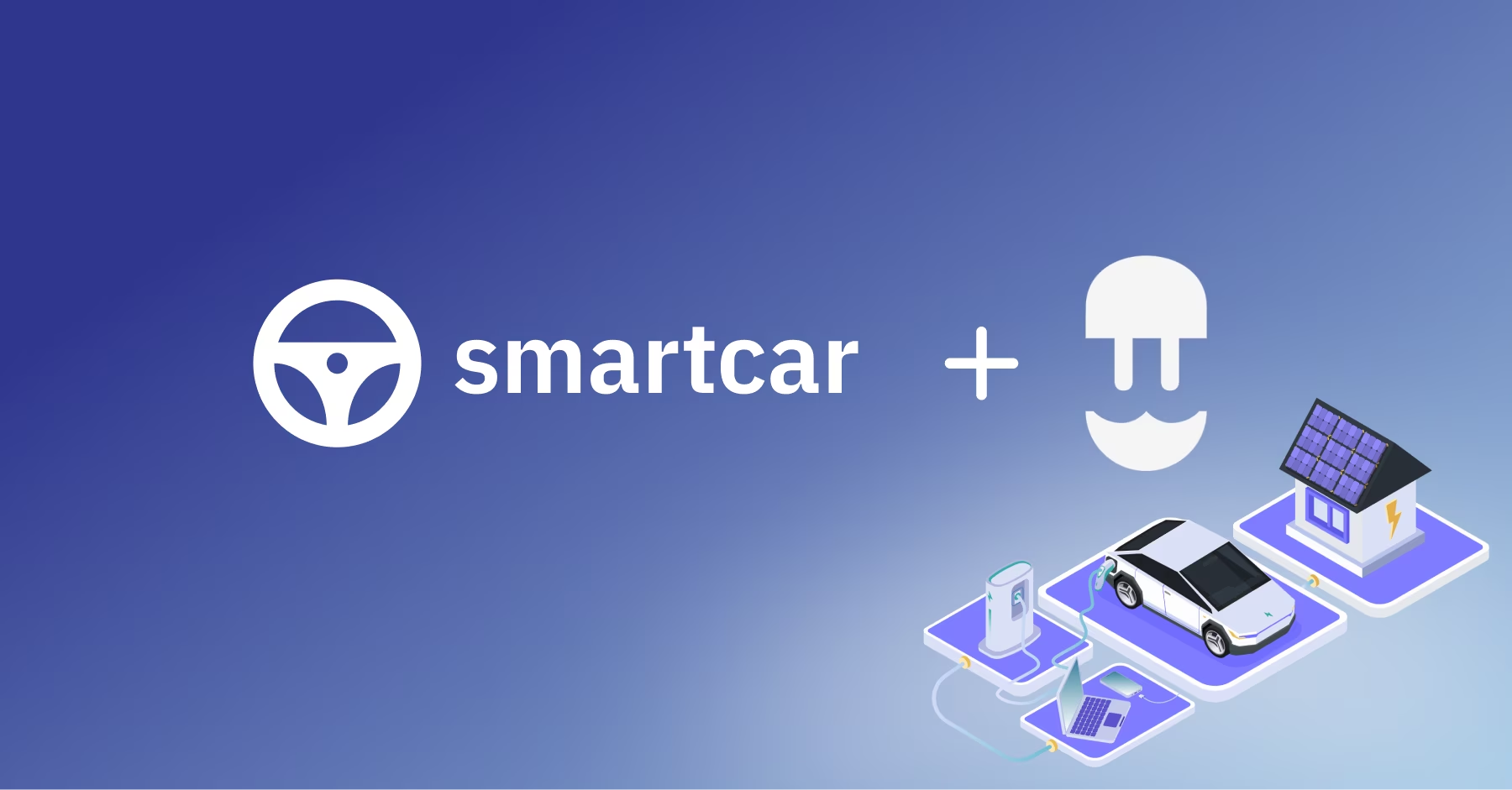The demand for US gasoline is dropping as more electric vehicles hit the roads. While this is great news for our commitment to Net Zero, it opens the floor to revisit taxes built around gasoline consumption and consider pay-per-mile vehicle mileage taxes instead. Here’s how car API platforms like Smartcar can help states implement road usage charge programs to fund transportation infrastructure in place of the gas tax.
What is road usage charge?
Road usage charge (RUC) programs are being piloted as a gas tax alternative for transportation funding. In the program, EV drivers contribute with a pay-per-mile vehicle mileage fee instead of a larger one-time flat fee paid in advance.
Analysts predict that EV sales will make up roughly 53% of all new passenger car sales in the US by 2030. Meanwhile, the Energy Information Administration foresees a 30% decrease in gas tax revenue within the same period of time.
What this means is a Highway Trust Fund running at a loss of hundreds of billions, preventing the maintenance of safe transportation infrastructure and forcing drivers to pay more to operate a vehicle on rough roads.
For states, the responsibility falls on finding a safe, accessible, and affordable mileage-tracking solution that can be tested today and scaled for tomorrow. But for drivers already trying to digest new taxation changes, mileage-tracking sounds both intrusive and inconvenient.
Here’s how mobility solutions can use car APIs as an alternative to mileage-tracking devices for protecting consumer data privacy, decreasing production costs, and accommodating drivers across different vehicle makes.
📺 Learn more about the future fair and sustainable RUC programs at our upcoming webinar with emovis — watch the replay here!
Protect user privacy when collecting data on vehicle miles traveled
The idea of state governments keeping tabs on vehicle miles traveled doesn’t sit easily with most drivers — and for good reason. As software solutions continue to disrupt the transportation and mobility ecosystem, data on how and where citizens travel are on the table and must be guarded.
Car APIs enable hardware-free mileage tracking by accessing odometer readings directly instead of approximating mileage based on location and trip duration. A consent-based platform like Smartcar lets drivers do two things before enrolling in a road usage charge program:
👁 Review data permissions an app is requesting from their vehicle
🔓 Consent to an app retrieving that data from their vehicle
To enroll drivers in the state of Utah’s pay-per-mile road rax program, emovis uses Smartcar’s Odometer API endpoint to request access to real-time odometer readings. The Odometer API endpoint can only be used to retrieve odometer data from vehicles, so drivers will see it listed as the only permission on their application screen. They then have the option to allow this permission before being enrolled through the emovis app.
Unlike OBD-II dongles, vehicle owners interacting with a car API can opt-in with full control over the data they want or do not want to share. This reduces the risk of location-based data being shared without drivers knowing.

Hardware-free road usage charge programs are affordable and accessible
What if you still had to wait for Netflix to mail over a DVD instead of you streaming on their app right away? Some consumers might factor in time and convenience before reconsidering their decision entirely. Some might not have a DVD player at all.
Similarly, mailing out hardware for drivers to install manually creates friction that can reduce voluntary adoption of mileage-based user fees. Meanwhile, some vehicles, like the Tesla Model 3, don’t have OBD-ii ports and require a console connector and adapter to plug-in devices.
A software alternative helps mobility service providers onboard and enroll drivers into a road usage charge program much faster. It also means businesses spend less money purchasing hardware, shipping them to millions of households, and replacing or troubleshooting faulty devices.
With a single integration to a car API like Smartcar, odometer data is collected securely across over 20 compatible car brands while empowering developers with the right tools and customer support to debug errors from wherever they are.
Build future-ready vehicle mileage tax programs
The projected growth in the number of EV sales over the next decade means that road usage charge programs today must be flexible enough to go from catering hundreds of vehicles to millions.
When using a car API integration that’s compatible across multiple vehicle makes, capturing odometer data can be easily scaled up or down depending on business and market needs. Mileage data is collected remotely, securely, and in real-time across a larger number of vehicles while keeping production costs sustainable for future growth. This is how Smartcar’s API has helped Azuga go from one to 19 compatible vehicle brands over the past five years.
The higher quality of vehicle data collected through a car API is future-proof to serve the growing electrification of mobility infrastructure and services. Better real-time data allows solution providers to innovate RUC programs with seamless experiences across other use cases. For example, real-time odometer readings can be accessed by drivers instantly wherever they are to see how road usage charges may impact driving behavior or route planning.
A more efficient way to scale pay-per-mile road taxes
We’re excited to be working with mobility solution providers to help them deliver safe, forward-thinking, and accessible apps for road usage programs around the country.
For more information on Smartcar’s API, check out our docs center or schedule a demo with us today.
Vehicle brands, logos, and model names belong to their respective trademark holders and do not indicate endorsement or affiliation with Smartcar or emovis.




.png)
.jpg)
